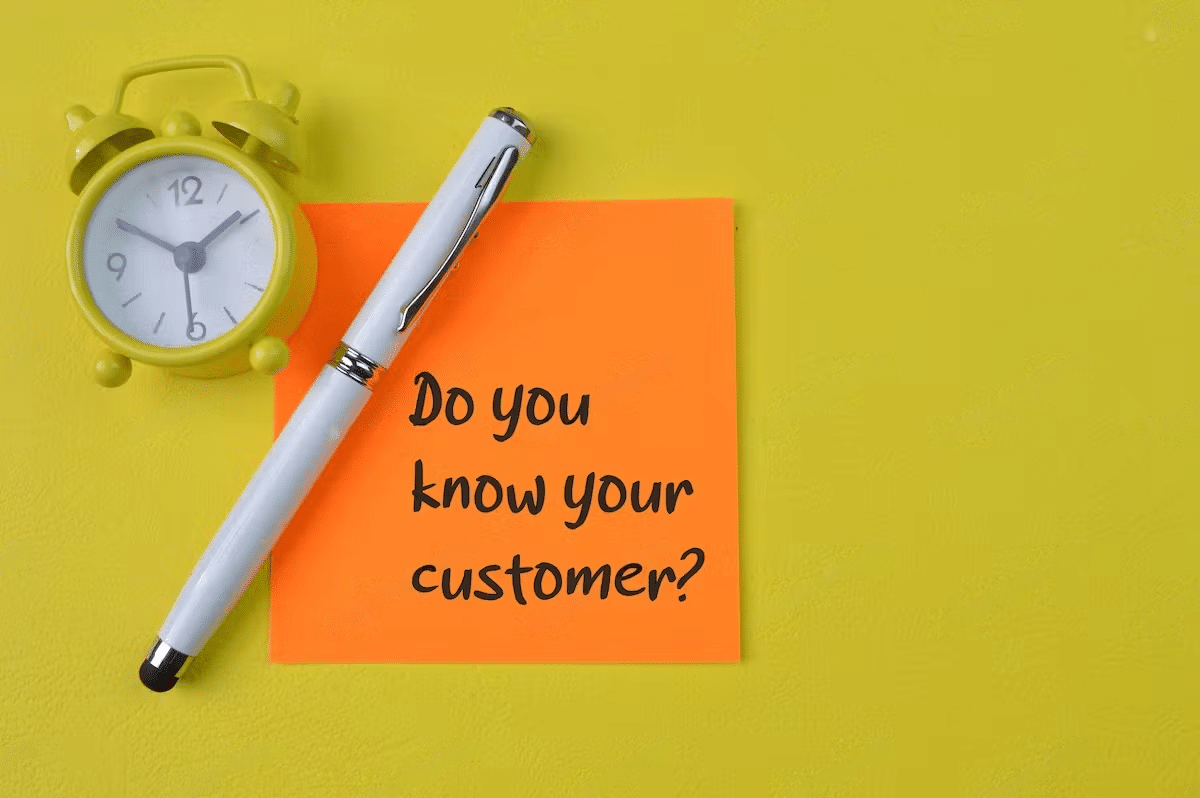
In today’s rapidly evolving business landscape, mastering B2C (business-to-consumer) sales has never been more important. With an increasing number of consumers turning to online shopping and a growing demand for personalised experiences, businesses must stay ahead of the curve to win over customers and stay competitive.
Throughout this post, we’ll dive deeper into each strategy and provide actionable tips for businesses looking to improve their B2C sales. Whether you’re a small business owner just starting or a seasoned marketer looking for new tactics, these strategies can help you stay ahead of the competition and win over today’s discerning consumers.
So let’s get started!
Know Your Audience

Understanding your audience is among the most important factors in B2C sales success. You must deeply understand their needs, preferences, and pain points, creating marketing and sales strategies that resonate with them. Here are some tips for getting to know your audience:
Conduct Customer Research
One of the best ways to learn about your audience is to ask them directly. Conduct customer surveys, focus groups, or interviews to gather insights about their motivations, behaviours, and preferences. This can help you tailor your marketing messages and product offerings to meet their needs.
Analyse Data
In addition to direct feedback, you can also gather insights by analysing customer data. This includes data from your website (such as pageviews, bounce rates, and conversion rates), social media analytics (such as engagement rates and demographics), and sales data (such as purchase history and average order value). This data lets you identify patterns and trends that inform your marketing and sales strategies.
Create Buyer Personas
To make visualising and understanding your audience easier, create buyer personas. These are fictional representations of your ideal customers based on demographic information, psychographic information, and behavioural data.
Offer Personalised Experiences
In today’s consumer landscape, personalisation is key. Customers want to feel like businesses understand their unique needs and preferences and will go the extra mile to meet them. Here are some tips for offering personalised experiences in B2C sales:
Tailor Recommendations
Use customer data (such as purchase history and browsing behaviour) to make personalised product recommendations. This can be done through on-site product recommendations, personalised emails, or retargeting ads. By offering recommendations based on what customers have shown interest in or purchased in the past, you can improve the relevance of your offerings and increase the likelihood of a purchase.
Customise Products
Businesses that offer customisable products (such as clothing or home decor) allow customers to personalise their selections. This can include options such as colour, size, or design. By allowing customers to create products that are unique to their preferences, you can increase customer satisfaction and create a sense of ownership over the product.
Leverage Technology
Use technology such as artificial intelligence (AI) or machine learning to offer personalised experiences at scale. For example, AI can analyse customer data and make real-time recommendations or create dynamic website experiences that change based on a customer’s behaviour. Utilizing specialized technology significantly boosts the efficiency and effectiveness of sales processes across industries. An example is the HVAC sales software, designed to build profitable proposals by applying pre-built or customizable pricing models. It enables setting varied profit margin goals for different project types and streamlines sales workflows from prospecting to secure contracts with electronic signatures. Such tools exemplify how targeted technological solutions can transform sales strategies to achieve better outcomes.
Use Multi-Channel Marketing

In today’s digital age, customers interact with businesses across various channels, from social media to email to physical stores. To succeed in B2C sales, businesses must have a multi-channel marketing strategy that reaches customers where they are. Here are some tips for using multi-channel marketing effectively:
Identify Key Channels
Start by identifying the channels where your target audience is most active. This can include social media platforms, email, mobile apps, or physical locations. You can maximise your marketing resources by focusing on the channels most likely to reach your audience.
Use A Consistent Message
While your marketing messages may vary slightly depending on the channel, it’s important to maintain a consistent brand voice and message across all channels. This can help build brand recognition and reinforce your value proposition.
Optimise For Each Channel
Different channels may require different marketing tactics to be effective. For example, social media may require more visual content and a casual tone, while email may require more personalised messaging and a clear call to action. By optimising your marketing for each channel, you can maximise its impact.
Measure Results
To determine the effectiveness of your multi-channel marketing strategy, it’s important to measure results across each channel. This can include tracking website traffic, engagement, conversion, and sales data. By monitoring these metrics, you can identify the most effective channels and adjust your strategy accordingly.
Prioritise Customer Service
In B2C sales, customer service is often the key differentiator between a good experience and a bad one. Customers expect businesses to be responsive, helpful, and proactive in addressing their needs. Here are some tips for prioritising customer service in B2C sales:
- Offer multiple support channels: Customers may have different preferences regarding contacting a business for support. Some prefer phone or email, while others prefer chat or social media. Additionally, businesses can also invest in customer portal software to provide a centralized platform where customers can access relevant information, submit requests, track progress, and engage in real-time discussions. You can accommodate a wider range of customer needs and preferences by offering multiple support channels.
- Provide fast response times: Customers don’t want to wait long for a response when they have a question or issue. Aim to respond to customer inquiries within 24 hours (or less, if possible). This can help build trust and confidence in your business and reduce the likelihood of negative reviews or feedback.
- Monitor feedback: To ensure that your customer service meets customer expectations, monitoring feedback regularly is important. This can include surveys, reviews, or social media mentions. Use this feedback to identify areas for improvement and make changes as necessary.
Leverage Social Proof
- Encourage customer reviews: Make it easy to leave reviews by sending follow-up emails after a purchase, offering incentives for reviews, or featuring reviews prominently on your website or social media channels. Positive reviews can help build trust and credibility with potential customers.
- Highlight customer success stories: If customers have succeeded in using your product or service, sharing their stories through a reliable testimonial service like VocalVideo can be particularly effective. This can be in the form of case studies, testimonials, or user-generated content. These stories help potential customers see the value of your offering and how it can benefit them.
- Display social proof prominently: Whether it’s reviews, ratings, or customer success stories, display it prominently on your website and other marketing materials. This can help potential customers see the value of your offering and increase the likelihood of conversion.
Conclusion
B2C sales can be complex and challenging, but by following these strategies, businesses can increase their chances of success. By knowing their audience, offering personalised experiences, using multi-channel marketing, prioritising customer service, and leveraging social proof, businesses can create a more positive and memorable experience for their customers.
Was this article helpful? Let us know in the comments.
FAQs
What is social proof, and how can businesses leverage it in B2C sales?
Social proof refers to the idea that people are more likely to make a decision based on the actions and opinions of others. Businesses can leverage social proof to use customer reviews, ratings, testimonials, and success stories to build trust and credibility with potential customers.
How can businesses stay up-to-date with the latest B2C sales trends and strategies?
To stay up-to-date with the latest B2C sales trends and strategies, businesses can read industry publications, attend conferences and events, network with other professionals in the industry, and stay informed about changes in consumer behaviour and preferences.
Why is it important to personalise the customer experience in B2C sales?
Personalising the customer experience can help businesses create a stronger customer connection, increase loyalty, and differentiate themselves from competitors.





